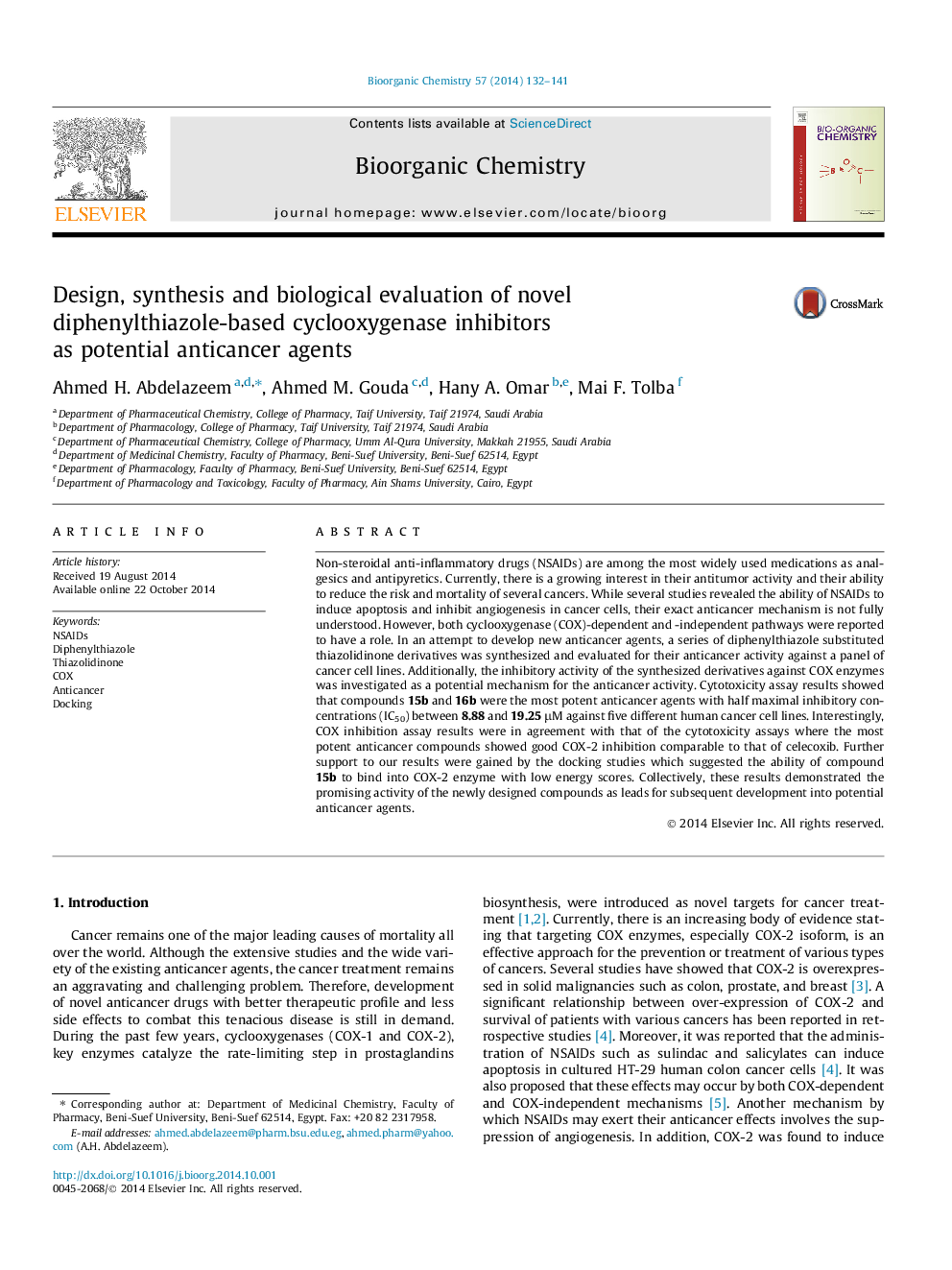| کد مقاله | کد نشریه | سال انتشار | مقاله انگلیسی | نسخه تمام متن |
|---|---|---|---|---|
| 1355917 | 1500457 | 2014 | 10 صفحه PDF | دانلود رایگان |
• A novel series of diphenylthiazole derivatives was designed and synthesized.
• All compounds were evaluated as anticancer agents against a panel of cell lines.
• COX inhibition assay was performed to investigate the mechanism of action.
• COX inhibition assay results were in agreement with that of cell viability assay.
• 15b & 16b were the most potent anticancer compounds with IC50 values between 8.88 and 19.25 μM.
Non-steroidal anti-inflammatory drugs (NSAIDs) are among the most widely used medications as analgesics and antipyretics. Currently, there is a growing interest in their antitumor activity and their ability to reduce the risk and mortality of several cancers. While several studies revealed the ability of NSAIDs to induce apoptosis and inhibit angiogenesis in cancer cells, their exact anticancer mechanism is not fully understood. However, both cyclooxygenase (COX)-dependent and -independent pathways were reported to have a role. In an attempt to develop new anticancer agents, a series of diphenylthiazole substituted thiazolidinone derivatives was synthesized and evaluated for their anticancer activity against a panel of cancer cell lines. Additionally, the inhibitory activity of the synthesized derivatives against COX enzymes was investigated as a potential mechanism for the anticancer activity. Cytotoxicity assay results showed that compounds 15b and 16b were the most potent anticancer agents with half maximal inhibitory concentrations (IC50) between 8.88 and 19.25 μM against five different human cancer cell lines. Interestingly, COX inhibition assay results were in agreement with that of the cytotoxicity assays where the most potent anticancer compounds showed good COX-2 inhibition comparable to that of celecoxib. Further support to our results were gained by the docking studies which suggested the ability of compound 15b to bind into COX-2 enzyme with low energy scores. Collectively, these results demonstrated the promising activity of the newly designed compounds as leads for subsequent development into potential anticancer agents.
Figure optionsDownload as PowerPoint slide
Journal: Bioorganic Chemistry - Volume 57, December 2014, Pages 132–141
